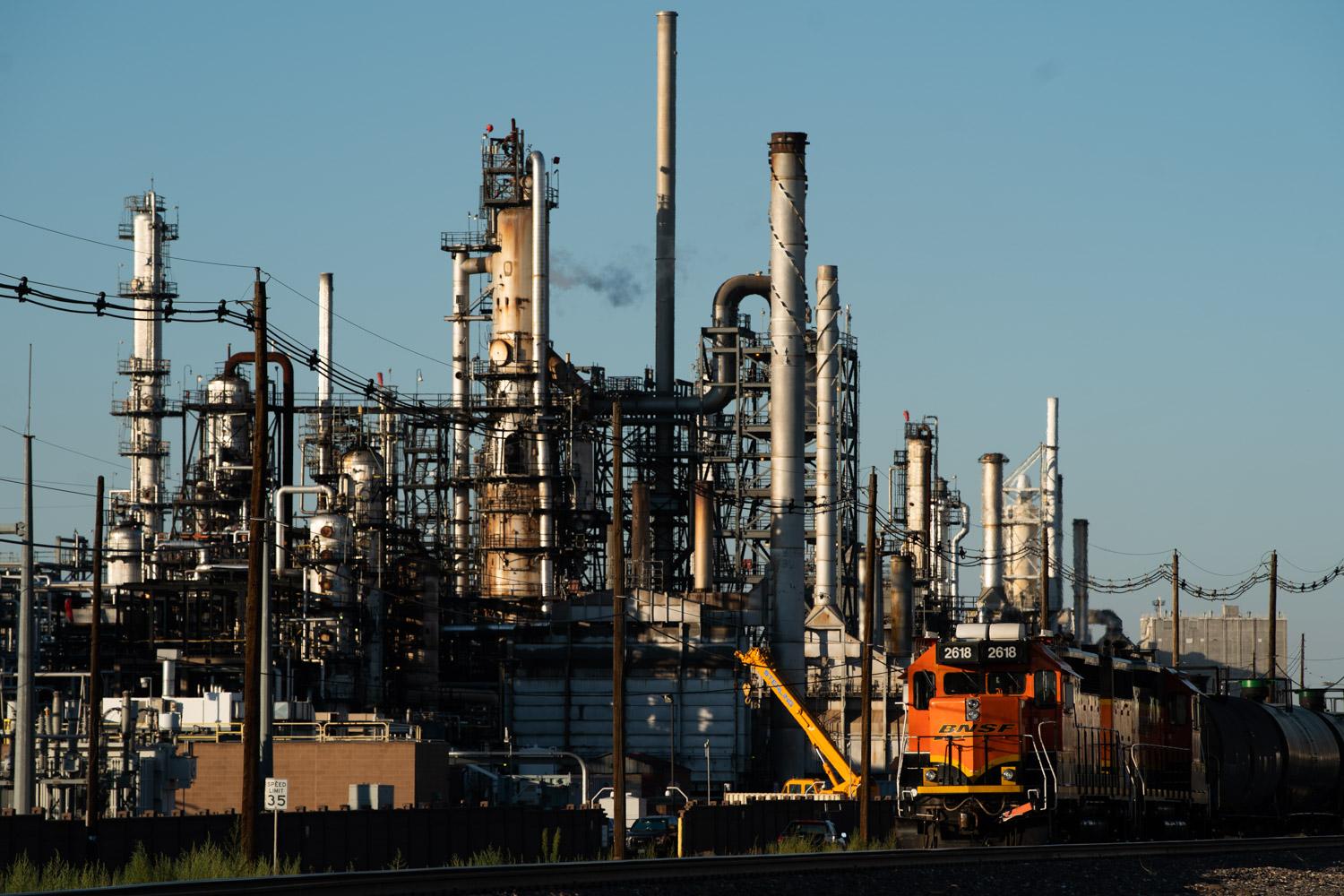
A coalition of environmental groups announced plans on Wednesday to sue Suncor Energy for chronic air pollution violations at its Commerce City refinery, alleging state and federal regulators have failed to protect residents living nearby.
“Our health is not a joke. We’ve learned we can’t trust our government over and over again, so we need to make sure the law is enforced,” said Lucy Molina, a community activist who lives near the refinery and works with climate advocacy group 350 Colorado.
In an intent-to-sue notice sent to Suncor, attorneys with Earthjustice, a nonprofit environmental law organization, claimed it had documented at least 9,209 instances over the last five years when the facility exceeded pollution limits and exposed residents to impermissible levels of volatile organic compounds, particulate matter, carbon monoxide, hydrogen sulfide, sulfur dioxide and nitrogen oxide.
The Suncor facility is Colorado’s only refinery, processing 98,000 barrels of oil per day in a heavily Latino neighborhood just north of Denver. A recent report from the U.S. Environmental Protection Agency found it has more unplanned pollution releases and malfunctions than similar facilities across the country. Its location and poor environmental track record have made the refinery a top target for Colorado’s environmental justice movement.
Earthjustice is leading the case on behalf of the Sierra Club, 350 Colorado and GreenLatinos. It filed the notice with Suncor and relevant state and local agencies, clearing a path for the groups to submit an official lawsuit in federal court after a 60-day waiting period.
If filed, the lawsuit would seek to force Suncor to comply with the U.S. Clean Air Act, which allows citizens to sue if state and federal authorities fail to stop ongoing pollution violations. If a court sides with the plaintiffs, it could order Suncor to make fixes at the refinery and impose fines. The environmental groups could also recover attorney fees spent during the litigation process.
That outcome would, in effect, overrule the authority of the two agencies tasked with regulating the facility: the EPA and the Colorado Department of Public Health and Environment.
Representatives for Suncor Energy and the state health and environment agency did not immediately respond to CPR News’ request for comment about the potential lawsuit. Richard Mylott, a spokesperson for the U.S. EPA Region 8, said the agency is reviewing the notice and continues to focus on ways to use its authority to improve air quality in Commerce City and north Denver.
The state has taken action against Suncor due to ongoing air pollution issues at the refinery. In February, state environmental regulators announced the company had agreed to pay $10.5 million to settle air pollution violations racked up between July 2019 and June 2021 — the largest penalty ever levied against a single facility in Colorado. More than three-quarters of the total, however, went toward improving the refinery itself. The company paid only $2.5 million as a direct penalty for the violations.
Ian Coghill, a senior Earthjustice attorney leading the lawsuit, said his organization estimates the state could have sought a direct penalty of more than $30 million. By opting for looser enforcement, he said the state enables the company to continue filing long lists of potential air pollution violations every few months.
“Suncor has this chronic history of exceeding the same limits over and over again, and clearly what the state has done thus far hasn’t worked,” Coghill said. “Enforcement is supposed to make it more expensive for a company to violate a permit rather than comply with a permit.”
Under the citizen lawsuit provision of the U.S. Clean Air Act, the state or federal government could submit its own lawsuit seeking to hold the company accountable during the 60-day waiting period. That complaint would then supersede the case filed by environmental groups.
Coghill, however, said he would be surprised if state or federal regulators elected to pursue legal action, especially since the lawsuit from environmental groups addresses violations included in the 2023 settlement between Colorado and Suncor.








